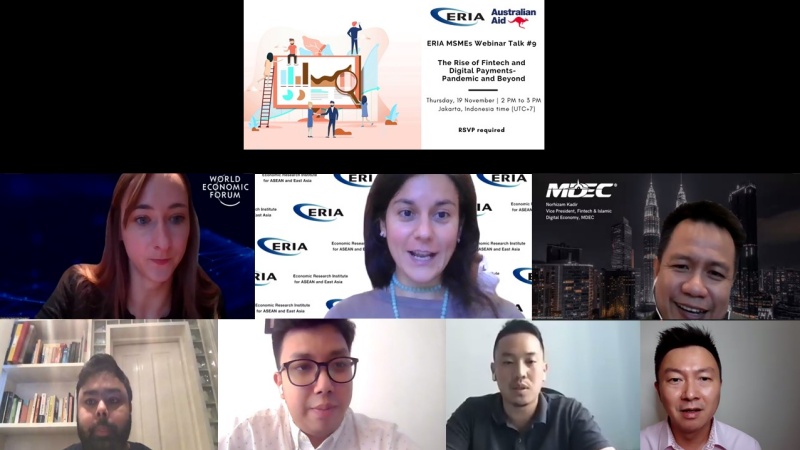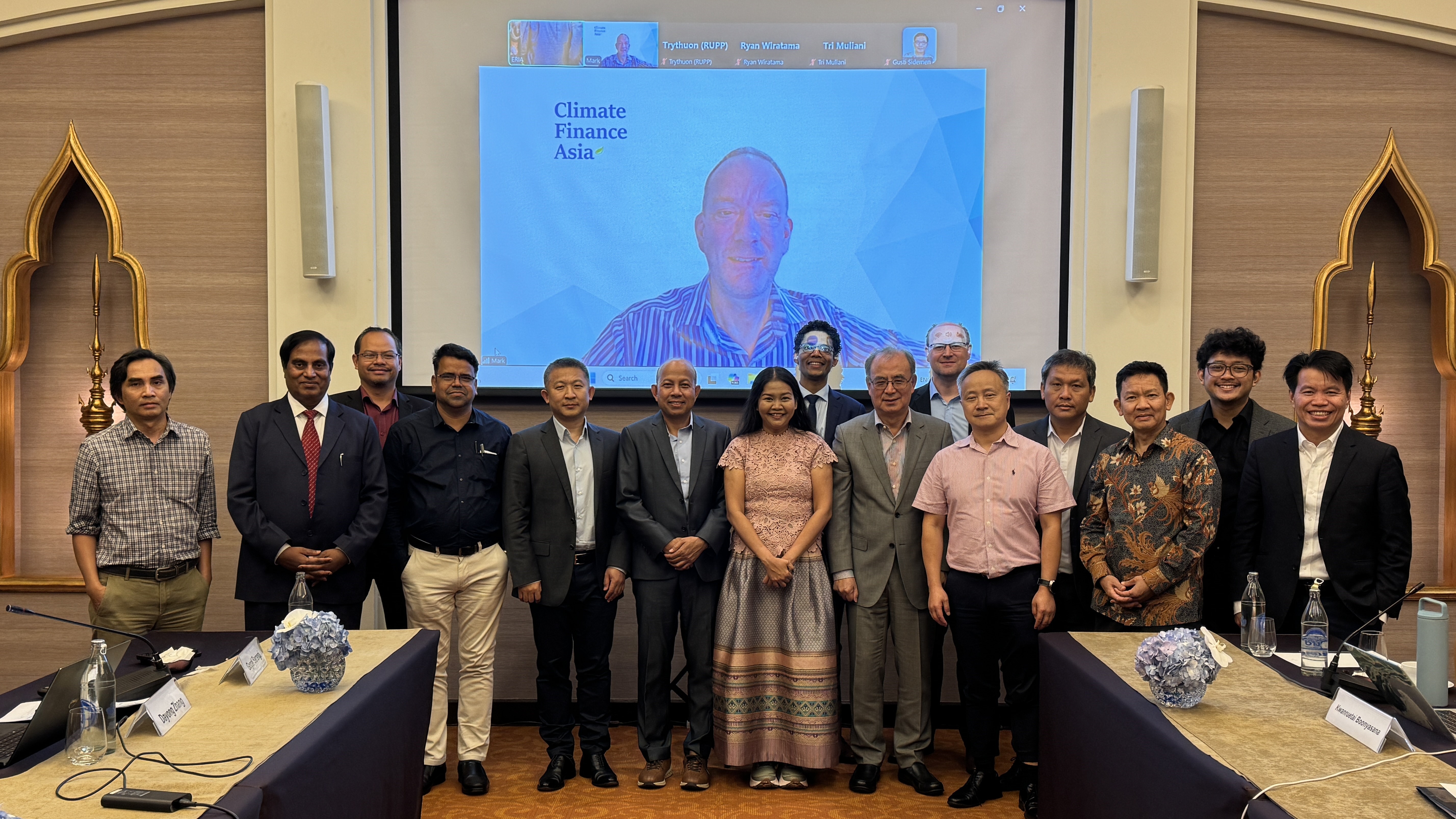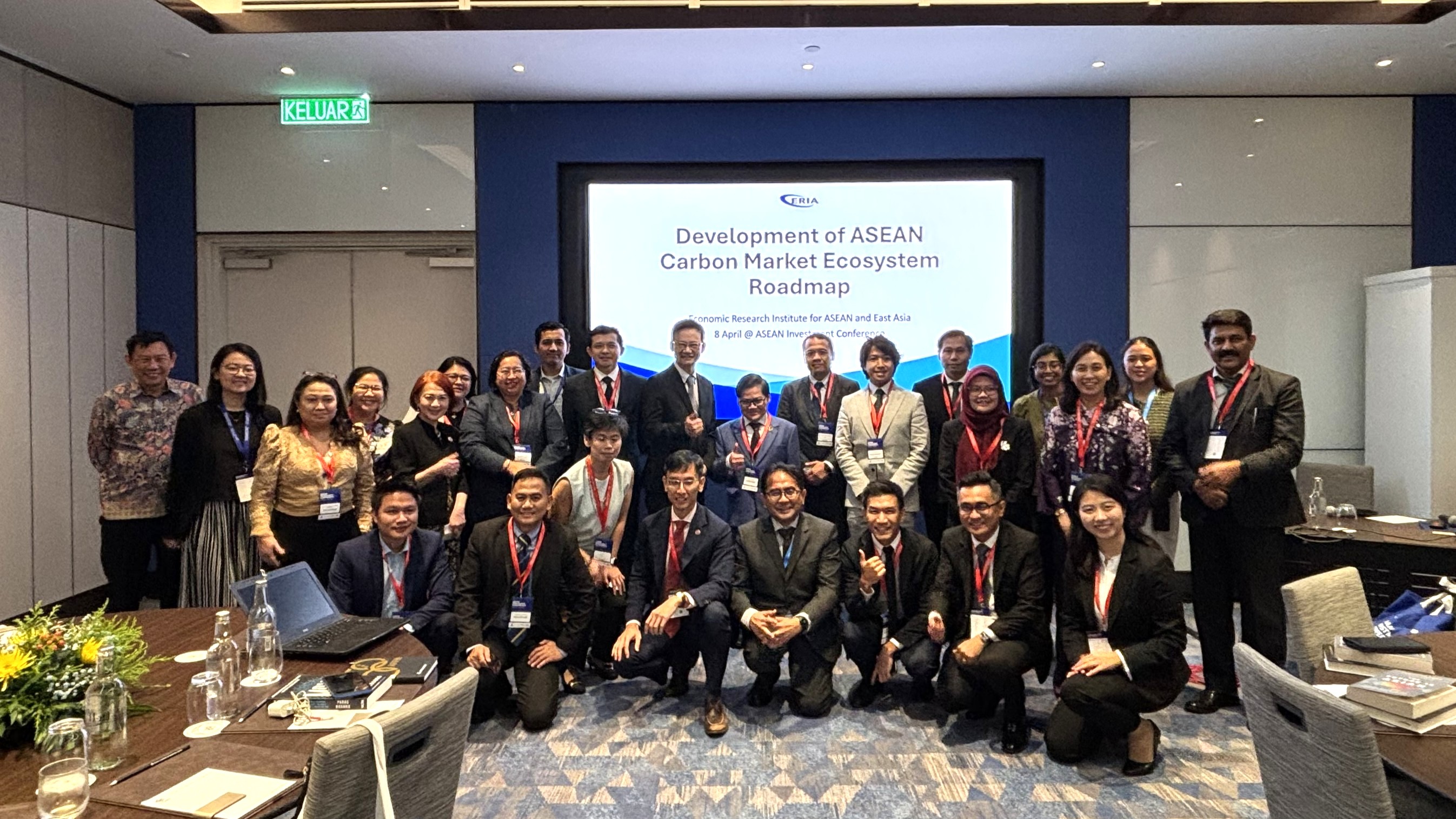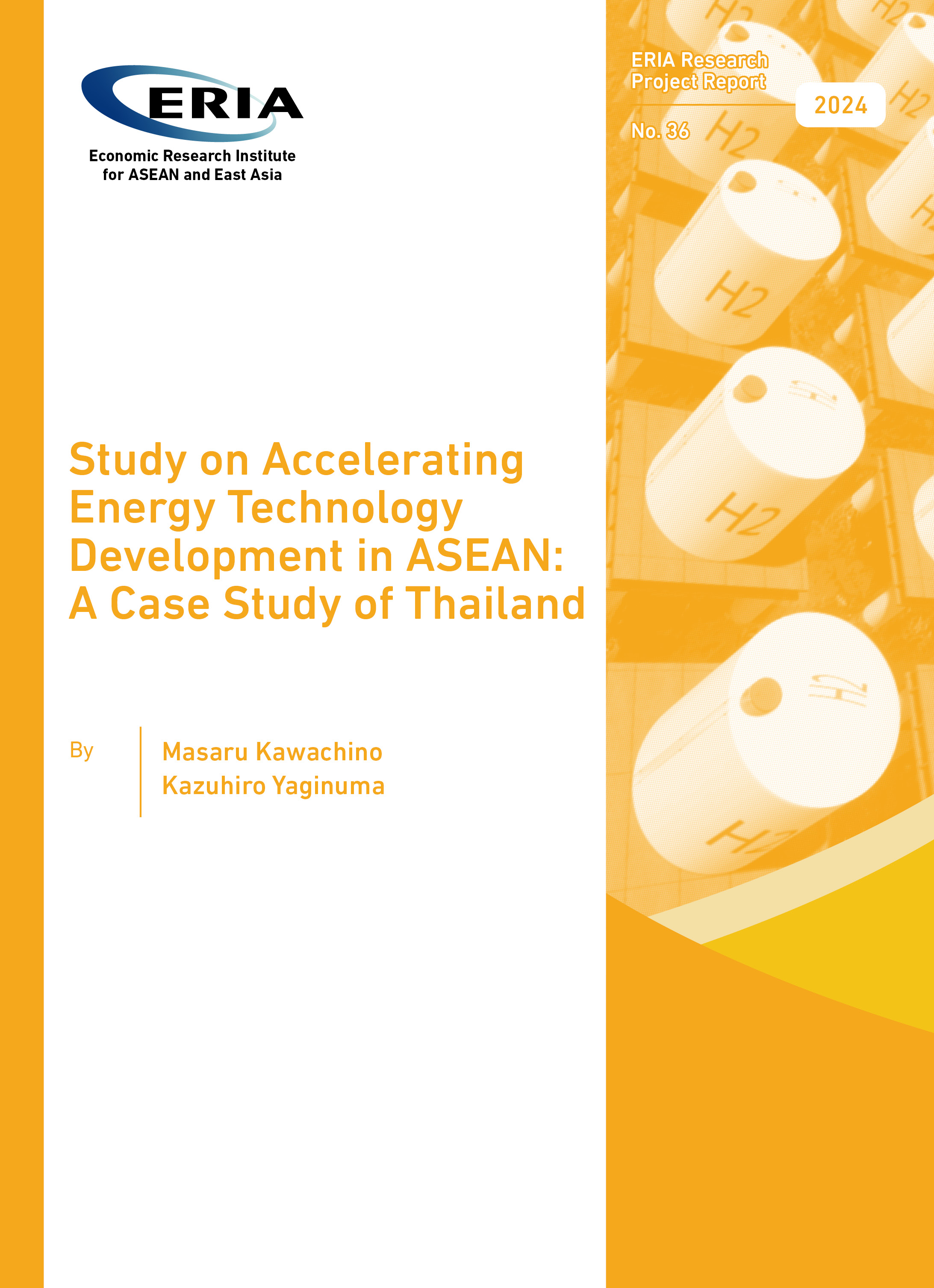ERIA Hosts Webinar on Digital Payment and Fintech Innovation to Accelerate Financial Inclusion Across ASEAN
Date
19 November 2020Category
VideoShare Article:
Print Article:
Jakarta, 19 November 2020: ERIA's MSMEs Webinar Talk #9 was held on the 19th of November. The webinar covered ‘The Rise of Fintech and Digital Payments-Pandemic and Beyond’ and was organised under ERIA’s Strategy and Partnership Programme, funded by Australia. It attracted more than 120 participants from the Asia-Pacific region and beyond.
In her opening remarks, Dr Giulia Ajmone Marsan, ERIA’s Director of Strategy and Partnership, stated that the number of fintech firms and digital financial service providers has increased steadily across ASEAN over the last few years. She added that the innovations in digital financial services are enabling a larger proportion of ASEAN MSMEs to access these types of services, notably ‘unbanked’ MSMEs, that is, those MSMEs disconnected from traditional baking services. However, she also noted that fintech challengers need to build critical mass, scale-up, and work across fragmented markets across the region.
Five speakers shared their views and perspectives:
- Ye Myat Min, CEO, Nexlabs (Myanmar)
- Denny Muslim, Founder & Director, BEEP Digital Solutions (Brunei)
- Norhizam bin Abdul Kadir, Vice President, Malaysia Digital Economy Corporation (MDEC)
- Kimberley Botwright, Community Lead, Global Trade and Investment, World Economic Forum (WEF)
- Pritam Basu, Founder, Boseman Group (London, UK)
The main messages derived from the discussion were:
- The role of digital payment and innovation to accelerate financial inclusion and promote a digital inclusive economy across the ASEAN region;
- The increased demand for technology adoption including digital payment due the impact of COVID-19;
- The importance of innovative national and regional regulatory frameworks (such as sandboxes) to boost financial inclusion development;
- The importance to provide access to digital financial literacy.
Mr Ye Myat Min started his fintech firm to bridge the gap between consumers and business in Myanmar’s emerging digital ecosystem. He noted the importance of accelerating the digital transformation of traditional business industries and of promoting financial inclusion in Myanmar. He highlighted the significant increase in the impact of COVID-19 on the adoption of digital payments in Myanmar. He also spoke about the importance of fintech-friendly regulatory frameworks and financial literacy to accelerate future inclusive digital economy development in Myanmar.
Mr Denny Muslim highlighted the importance of the high penetration rate of smartphones in Brunei as well as the importance of digital payments to support global value chains. Especially because of the impact of COVID-19, he noted the important role of partnerships between the government and the business sector to consolidate merchant services hubs as platforms to develop e-commerce.
Mr Norhizam bin Abdul Kadir explained that the smartphone penetration rate in Malaysia has exceeded 80%. He emphasized the Malaysian government’s objective to promote financial inclusion and a digitally inclusive economy. He also explained different MDEC initiatives to accelerate technology adoption and demand including 1) strengthening the Malaysian fintech community by encouraging public-private partnerships and capacity building activity 2) connecting the Malaysian business community globally 3) building an online platform to share information about the advancement of digital financial inclusion.
Ms Kimberley Botwright highlighted positive trends across the ASEAN region, for instance, the significant innovation in digital advancements, the impact of COVID-19 as a catalyst for the acceleration of digital payments adoption, and the increased numbers of MSMEs using digital payments to attract more consumers. Despite the positive trends, she mentioned several barriers that might hinder fintech adoption including limited financial literacy, limited regulatory harmonization across countries, cultural diversity, digital protectionism, and the emergence of data localization requirements. She highlighted the importance of ASEAN regional integration and regional cooperation to overcome these barriers.
Mr Pritam Basu described different trends in fintech across Europe, the US, Japan, South Korea, and Latin America. He discussed the critical role for policymakers to encourage and facilitate the emergence of the digital business ecosystem, for instance by allowing regulatory sandboxes and listening to the challenges of fintech start-ups. He also discussed the rising opportunities for fintech entrepreneurs in emerging markets.
During the Q&A session, themes that emerged included 1) the importance of government regulatory frameworks to accelerate financial inclusion development; 2) different strategies and business models for fintech firms and digital payment service providers.
Related Publications
- Improving Digital Connectivity: Policy Priority for ASEAN Digital Transformation
- ASEAN MSMEs in a COVID-19 World: Lessons from ERIA MSMEs Talks 1-5
MSME Talk News and Recording
- MSME Talk #1: ASEAN MSMEs in a COVID-19 World
- MSME Talk #2: Riding on the E-commerce Bandwagon: 2nd ERIA MSME Series Talk
- MSME Talk #3: ERIA Hosted Webinar on Overcoming GVC Disruptions for MSMEs
- MSME Talk #4: ERIA Hosts Webinar on Women Entrepreneurship Amidst COVID-19
- MSME Talk #5: Sustainability Practices for MSMEs in a COVID-19 World and Beyond
- MSME Talk #6: ERIA hosted the MSMEs Talk #6 - Upskilling to Succeed- ASEAN MSMEs in the Digital Economy
- MSME Talk #7: ERIA Holds Webinar on Agility and Resilience of Micro-Businesses Amidst and After the Pandemic
- MSME Talk #8: ERIA Hosts Webinar on Woman in STEM and the Digital Economy from the Perspective of ASEAN








